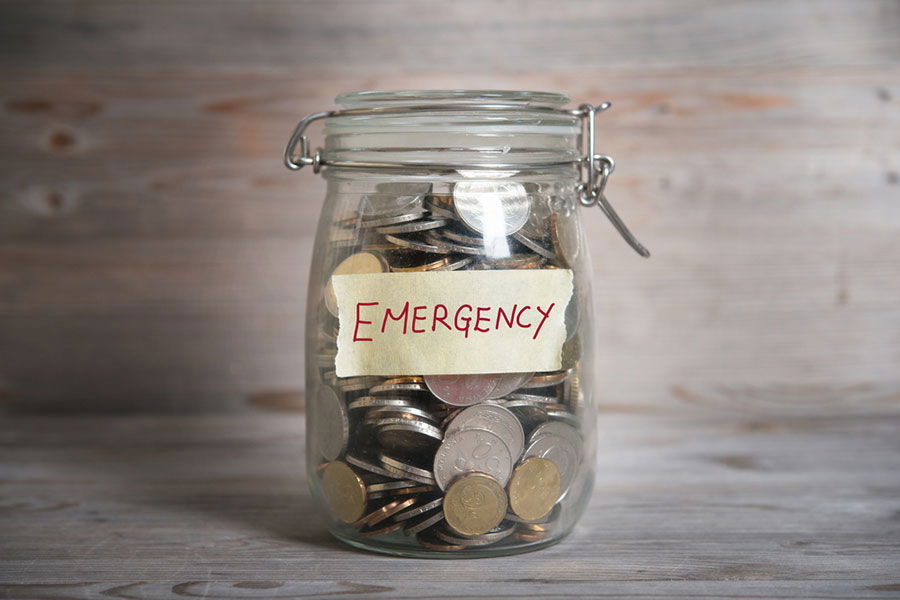A root canal can cost over $1,000, and dental implants run upwards of $3,000 per tooth. If you don’t have insurance, covering these expenses out of pocket isn’t always an option—especially if you have bad credit.
Many people assume dental work can wait, but ignoring problems can make things worse. A simple filling might turn into a costly crown or extraction. When you don’t have cash on hand, financing can help you get the care you need before small issues become major problems.
Whether you need a minor procedure or emergency treatment, there are ways to finance dental work—even with bad credit. Below, we’ll cover the best loan options, key things to consider, and alternative ways to manage the cost.
Best Long-Term Dental Loans for Bad Credit
If you need to cover a major dental procedure, a long-term personal loan can spread the cost into manageable monthly payments. Even with bad credit, some lenders offer financing options.
Before choosing a lender, compare interest rates and loan terms. A lower rate can save you hundreds or even thousands over time. Here are some of the best long-term dental loan providers.
Upgrade
Upgrade offers personal loans tailored for individuals with varying credit profiles, including those with bad credit. Their loans can be used for various purposes, such as debt consolidation, home improvements, or covering emergency expenses.
PersonalLoans.com
PersonalLoans.com connects borrowers with a network of lenders offering personal loans suitable for dental expenses. They cater to a broad range of credit profiles, including those with bad credit.
Short-Term Loans for Bad Credit Dental Financing
If you have a minor dental issue, a short-term personal loan might be more appropriate. For example, a smaller loan may be able to cover a simple filling or a toothache.
MoneyMutual
MoneyMutual connects borrowers with a network of short-term lenders, offering quick access to funds for dental expenses. It is not a direct lender, so loan terms and interest rates vary by lender.
BadCreditLoans
BadCreditLoans connects borrowers with a network of lenders offering personal loans tailored for those with poor credit histories. This platform provides quick access to funds for various needs, including dental expenses.
CashAdvance.com
CashAdvance.com is an online platform that connects borrowers with short-term lenders, providing quick access to funds for urgent needs, including dental expenses. As a lending marketplace, it facilitates the loan process but does not directly issue loans.
How Do Dental Loans Work?
Personal loans from banks, credit unions, and online lenders can be used to cover dental costs not covered by insurance. These loans provide a lump sum upfront, which you’ll repay in fixed monthly installments over a set period.
Approval depends on factors like credit score, income, and existing debts. Interest rates and terms vary, so it’s smart to pre-qualify with multiple lenders and compare options before committing.
Once funded, you can use the loan to cover any dental or orthodontic treatment and focus on repaying it over time.
Dental Financing Options for Bad Credit
Dental care can be expensive, but financing options exist—even if you have bad credit. Once you know the cost of your procedure, you can explore different ways to pay, including personal loans and alternative financing solutions.
Common treatments covered by dental loans include:
- braces
- bridgework
- dental crowns
- dental implants
- emergency procedures
- teeth aligners
- teeth whitening
- retainers
- veneers

How to Compare Dental Loans for Bad Credit
Choosing the right dental loan can feel overwhelming, especially when dealing with an urgent procedure. To make an informed decision, focus on these key factors:
Interest Rate & APR
The interest rate affects how much you’ll pay in interest, but the APR gives a clearer picture of the total loan cost, including fees. Always compare APRs, not just interest rates, to find the best deal.
Fees
Many lenders charge fees that add to the overall cost of the loan. Look out for:
- Origination fees: A percentage of the loan amount, deducted before funding.
- Prepayment penalties: Some lenders charge a fee if you pay off your loan early.
- Late fees: Missing a payment can result in extra charges.
Loan Terms
Loan terms determine how long you’ll be making payments. Shorter terms mean higher monthly payments but lower overall interest costs. Longer terms lower your monthly bill but increase the total cost of the loan. Choose a term that fits your budget without overpaying in interest.
Using Credit Cards for Dental Expenses
Dental loans aren’t the only way to cover unexpected dental costs. Medical credit cards and traditional credit cards can also help, but they come with risks, especially for borrowers with bad credit.
Unlike installment loans with fixed payments and set terms, credit cards can lead to high-interest debt if not paid off quickly. If you have no other financing options, a credit card might be your last resort. However, some options offer more favorable terms, particularly for medical expenses.
CareCredit
CareCredit, offered by Synchrony Bank, is a medical credit card designed for healthcare expenses, including dental work. It can be used for everything from routine cleanings to major cosmetic procedures. Some providers offer promotional financing with deferred interest, but carrying a balance past the promotional period can lead to high APRs.
Other Ways to Finance Dental Work
A personal loan or credit card isn’t always the best fit. Here are other options to help cover the cost of dental procedures.
In-House Payment Plans
Some dentists offer direct financing, allowing you to pay in installments instead of covering the full bill upfront. While these plans may not always have the lowest rates, they can be a convenient way to spread out costs without dealing with a third-party lender. If you’re a long-time patient, you may even be able to negotiate better terms.
Dental Schools
Dental schools often provide discounted treatment performed by students under the supervision of licensed professionals. These programs can be a great way to save on costly procedures. The American Dental Association maintains a list of accredited dental schools where you can check for options in your area.
0% APR Credit Cards
If you have good or excellent credit (690 or higher), a 0% APR credit card may be an option. These cards offer an introductory period of 15 to 18 months where no interest is charged on purchases. If you can pay off the balance before the promo period ends, you’ll avoid interest charges entirely.
Dental Savings Plans
Some insurance providers offer dental savings plans that provide discounts on procedures in exchange for an annual fee. While these aren’t the same as traditional dental insurance, they can significantly reduce costs for routine and major dental work.
Dental Loans vs. Credit Cards: Which Is Better?
Both personal loans and credit cards can help cover dental expenses, but the right choice depends on your financial situation.
Advantages of Dental Loans
- Lower interest rates: Personal loans typically have lower APRs than credit cards, especially for borrowers with decent credit.
- Fixed payments: Monthly payments stay the same, making budgeting easier.
- Potential credit boost: Consistently repaying a loan can improve your credit score over time.
Advantages of Credit Cards
- Easier approval: Some credit cards are more accessible for borrowers with bad credit.
- Potential rewards: Some cards offer points or cashback on purchases.
- No set loan amount: You can borrow only what you need instead of taking out a fixed loan amount.
How to Limit the Cost of Dental Care
Taking out a dental loan can help cover expenses, but it also means paying interest and fees. Before financing a procedure, consider ways to reduce costs and avoid unnecessary debt.
Ask Your Dentist About Payment Plans
Some dentists offer in-house financing, allowing you to break payments into manageable monthly installments. This can be especially useful for ongoing treatments like braces or dental implants.
One of the biggest advantages of in-house payment plans is that they often come with little or no interest, making them a more affordable option than traditional loans. Not all dentists offer this, but it never hurts to ask. The worst they can say is no.
Prioritize Preventative Care
Regular brushing, flossing, and dental checkups can help you avoid costly procedures in the future. Routine cleanings and early treatment of minor issues can prevent larger, more expensive problems down the road. The best way to save on dental care is to take care of your teeth before major work is needed.
Build an Emergency Fund
Unexpected expenses are part of life, and dental work can be one of them. Setting aside money for emergencies can prevent you from needing to take out a loan when an urgent procedure arises.
Take action and start saving to prepare for these minor emergencies along the way. Learn how to save $1,000 in 90 days here.
Bottom Line
A dental emergency can be both painful and expensive, especially if you don’t have insurance. Fortunately, financing options are available—even if you have bad credit.
Before committing to a dental loan, compare at least three lenders, look for the lowest APR, and check for hidden fees. If a loan isn’t the right fit, consider alternative options like in-house payment plans, 0% APR credit cards, or dental savings programs. The right approach can help you get the care you need without unnecessary financial strain.
Frequently Asked Questions
How can I increase my chances of getting approved for a dental loan?
Improving your credit score, reducing existing debt, and applying with a co-signer can boost your approval odds. Some lenders also offer prequalification, allowing you to check potential rates without impacting your credit score.
Can I use a personal loan to pay for braces or cosmetic dental work?
Yes, personal loans can be used for any type of dental procedure, including braces, veneers, and teeth whitening. Since the funds are deposited directly into your account, you can use them however you choose.
Will applying for a dental loan hurt my credit score?
Most lenders allow you to check loan offers with a soft credit inquiry, which won’t impact your score. However, once you officially apply, a hard credit inquiry will occur, which may temporarily lower your score.
Are there dental financing options that don’t require a credit check?
Yes, some dentists offer in-house payment plans that don’t require a credit check. Additionally, medical credit cards like CareCredit may approve applicants with lower credit scores, though approval is not guaranteed.
What happens if I can’t make my dental loan payments?
Missing payments can result in late fees, a drop in your credit score, and potential default on the loan. If you’re struggling, contact your lender immediately to discuss options like deferment or a modified repayment plan.









